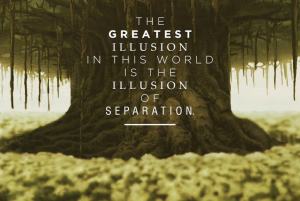To help celebrate the work of green pioneers and share great environmental achievements with the world we have decided to produce a series of interviews with a huge range of green champions from across the world.
To kick-start our series we have interviewed Catherine O’Brien who developed the concept of sustainable happiness – a theory which examines the integral link between happiness and sustainability.
 Sustainable happiness reinforces the fact that we are interdependent with one another and with the natural environment and therefore our mutual well-being is in-explicitly interconnected.
Sustainable happiness reinforces the fact that we are interdependent with one another and with the natural environment and therefore our mutual well-being is in-explicitly interconnected.
Catherine defines her concept as:
”Happiness that contributes to individual, community and global well-being and does not exploit other people, the environment, or future generations”.
So Catherine, what is your background? How did you come up with this concept?
My background is in sustainability education. Whilst I was at the Barefoot College in Rajasthan, India I began to think about the relationship between happiness and sustainability during my doctoral research. The college itself had an award-winning and extraordinary education process for sustainable community development. I lived there with my husband and two young children and truly felt that we were living in a culture of joy. This therefore inspired my first notion back in 1995, that people might be happier if we lived sustainably.
Later, as I became more familiar with positive psychology I realised that happiness research was very consistent with sustainability. However, most of the happiness literature didn’t make a connection with sustainability and the sustainability literature didn’t make a connection with happiness.
Also, the media had picked up on the happiness buzz and were often equating their products with happiness. It struck me that it could be valuable to have a concept that reinforces the connection between sustainability and happiness. I felt that sustainable happiness could assist individuals, organisations and nations to find new ways to foster happiness, well-being and sustainability.
What work have you done so far to help develop this concept?
I have created a university course on sustainable happiness that I teach at the Cape Breton University in Canada. I have also co-developed a course for UC Berkeley’s School of Public Health that integrates sustainability, happiness and health. Whilst developing these courses I was frequently asked about creating a course for the general public so I worked with colleagues, Rick Foster and Greg Hicks, and my husband Ian Murray who is a filmmaker to create an online course for everyone.
Since my field is education, I have also developed a free education resource for teachers which includes sustainable happiness lesson plans. In addition I have been involved in research that investigated the emotional experience of children and their parents on the trip to school. I see the positive emotions that children experience while walking to school as an example of sustainable happiness. Our research has found that children who walk to school reported more positive emotions than children to who were transported passively. The results were even more dramatic for parents. Parents who walked to school with their children reported more positive emotions than parents who drove their children.
You can see a full list of my publications and presentations on my website.
What plans do you have for the future?
I will be publishing a book very soon called ‘Lessons in Sustainable Happiness’. The first part of the book is specifically for teachers to enhance their happiness and well-being. The remainder of the book includes sustainable happiness for grades K-9.
I am very interested in encouraging municipalities to recognize how they are currently fostering sustainable happiness and also what measures they could take to enhance this. I’ve teamed up with 8-80 cities to create a brief brochure that outlines sustainable happiness for municipalities. We often see reports about the world’s happiest cities. I’d like to see the conversation expand to incorporate sustainability with happiness.
Why do you think this is so important?
 It is important for all of us to understand that every day our life touches and is touched by other people, other species and the natural environment. We are deeply interconnected, but those interconnections aren’t always visible or obvious. Consequently, in a consumer society we can lose sight of the fact that we are all making daily choices that contribute or detract from, well-being. I believe that sustainable happiness can make those connections more clear, and encourage people to make choices that contribute to their well-being and the well-being of other people and the environment.
It is important for all of us to understand that every day our life touches and is touched by other people, other species and the natural environment. We are deeply interconnected, but those interconnections aren’t always visible or obvious. Consequently, in a consumer society we can lose sight of the fact that we are all making daily choices that contribute or detract from, well-being. I believe that sustainable happiness can make those connections more clear, and encourage people to make choices that contribute to their well-being and the well-being of other people and the environment.
 Our formal education systems haven’t taught us explicitly about happiness and I think it is important for all of us to develop a happiness literacy. I also believe that learning about sustainable happiness can assist with positive mental health.
Our formal education systems haven’t taught us explicitly about happiness and I think it is important for all of us to develop a happiness literacy. I also believe that learning about sustainable happiness can assist with positive mental health.
Another factor is that indulging in over consumption is neither the path to happiness nor sustainability. Sustainable happiness can assist us to shift towards more sustainable lifestyles whilst maintaining a high quality of life.
What can people do to take part?
There are lots ways that individuals can have a sustainable happiness lifestyle. One of the activities that I give my students is the Sustainable Happiness Footprint Chart. They can use that to chart their activities for a day, a week, or longer to notice how daily choices are impacting their well being.
There are a range of other activities on my website and suggestions in a recent article entitled ‘Sustainable Happiness? 6 ways to Get There‘ in YES! magazine.
You can also take part in Sustainable Happiness week from April 13th – 20th
http://www.happycounts.org/about-sustainable-happiness-week/
Are you passionate about green issues if so which?
Absolutely! That’s part of sustainable happiness!
A key area where my work has focused is on child friendly planning and creating municipalities that support active travel for children. I also co-developed Child Friendly Planning Guidelines for Canada. Sustainable happiness links happiness and sustainability together. It reinforces the fact that we are interdependent with one another and the natural environment – that our mutual well-being is interconnected. It can also be used as a road map to explore what truly makes your heart sing.


![The Happiest Cities in the World [Infographic]](https://i0.wp.com/static.urbantimes.co/wp-content/uploads/2013/02/1681359-inline-find-happy-place-top-10-happiest-cities.jpg)



